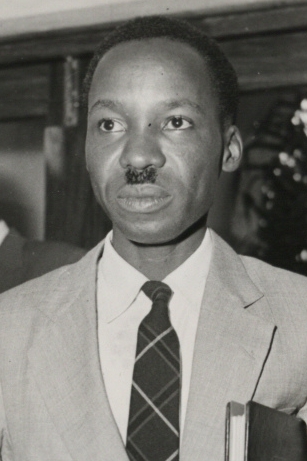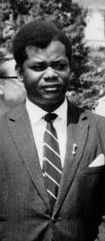Related Research Articles

Dar es Salaam is the largest city and financial hub of Tanzania. It is also the capital of Dar es Salaam Region. With a population of over six million people, Dar es Salaam is the largest city in East Africa and the sixth-largest in Africa. Located on the Swahili coast, Dar es Salaam is an important economic centre and is one of the fastest-growing cities in the world.

As it is in other countries, the music in Tanzania is constantly undergoing changes, and varies by location, people, settings and occasion. The five music genres in Tanzania, as defined by BASATA are, ngoma, dansi, kwaya, and taarab, with bongo flava being added in 2001. Singeli has since the mid-2000s been an unofficial music of uswahilini, unplanned communities in Dar es Salaam, and is the newest mainstream genre since 2020.
Bongo Flava is a nickname for Tanzanian music. The genre developed in the 1990s, mainly as a derivative of American hip hop and traditional Tanzanian styles such as taarab and dansi, with additional influences from reggae, R&B, and afrobeats, to form a unique style of music. Lyrics are usually in Swahili or English, although increasingly from mid 2000s there has been limited use of words from Sub-Saharan African music traditions due to the influence of Afrobeats and Kwaito with their dynamics usage of West African Pidgin English, Nigerian Pidgin or other Creole language.
Tanzanian Hip-hop, which is sometimes referred to Bongo Flava by many outside of Tanzania's hip hop community, encompasses a large variety of different sounds, but it is particularly known for heavy synth riffs and an incorporation of Tanzanian pop.

The University of Dar es Salaam (UDSM) is a public university located in Ubungo District, Dar es Salaam Region, Tanzania. It was established in 1961 as an affiliate college of the University of London. The university became an affiliate of the University of East Africa (UEA) in 1963, shortly after Tanzania gained its independence from the United Kingdom. In 1970, UEA split into three independent universities: Makerere University in Uganda, the University of Nairobi in Kenya, and the University of Dar es Salaam in Tanzania.

Following Tanganyika's independence (1961) and unification with Zanzibar (1964), leading to the formation of the state of Tanzania, President Julius Nyerere emphasised a need to construct a national identity for the citizens of the new country. To achieve this, Nyerere provided what has been regarded by some commentators as one of the most successful cases of ethnic repression and identity transformation in Africa.

Ujamaa was a socialist ideology that formed the basis of Julius Nyerere's social and economic development policies in Tanzania after it gained independence from Britain in 1961.

Oscar Salathiel Kambona was the first Minister of Foreign Affairs of Tanganyika from 1963 to 1966.
Ramazani "Remmy" Mtoro Ongala was a Tanzanian guitarist and singer. Ongala was born in Kindu near the Tanzanian border, in what was the Belgian Congo at the time, and now is the Democratic Republic of the Congo.
Edward Saidi Tingatinga (1932–1972) was a Tanzanian painter, best known as the founder of the eponymous painting style and school.
Ebrahim Hussein is a Tanzanian playwright and poet. His first play, Kinjeketile (1969), written in Swahili, and based on the life of Kinjikitile Ngwale, a leader of the Maji Maji Rebellion, is considered "a landmark of Tanzanian theater." The play soon became one of the standard subjects for exams in Swahili language in Tanzania and Kenya. By 1981, it had been reprinted six times.

Martha Mlagala Mvungi was a Tanzanian novelist, short-story writer, academic and teacher. She wrote in both Kiswahili and English.
Up to the second half of the 20th century, Tanzanian literature was primarily oral. Major oral literary forms include folktales, poems, riddles, proverbs, and songs. The majority of the oral literature in Tanzania that has been recorded is in Swahili, though each of the country's languages has its own oral tradition. The country's oral literature is currently declining because of social changes that make transmission of oral literature more difficult and because of the devaluation of oral literature that has accompanied Tanzania's development. Tanzania's written literary tradition has produced relatively few writers and works; Tanzania does not have a strong reading culture, and books are often expensive and hard to come by. Most Tanzanian literature is orally performed or written in Swahili, and a smaller number of works have been published in English. Major figures in Tanzanian modern literature include Shaaban Robert, Muhammed Said Abdulla, Aniceti Kitereza, Ebrahim Hussein, Abdulrazak Gurnah and Penina Muhando.
Amandina Lihamba is a Tanzanian academic, actress, playwright and theatre director. She is a professor at the University of Dar es Salaam in the Department of Fine and Performing Arts and has served as its dean, head of department, and university council member. In 1989, she co-founded the national Children Theatre Project and festival. She also founded the girls drama group Tuseme festival with Penina Muhando in 1998.
Farouk Mohamedhusein Tharia Topan is the director of the Swahili Centre at the Aga Khan University. He is a specialist in the language and literature of the Swahili people. He has taught at the University of Dar es Salaam, the Institute of Ismaili Studies, and the School of Oriental and African Studies.
Ruth E. Meena is a Tanzanian feminist activist and political scientist. She was a professor in the Department of Political Science and Public Administration at the University of Dar es Salaam.

Tanzania–Turkey relations are the foreign relations between Tanzania and Turkey. The Turkish embassy in Dar es Salaam first opened in 1979, although the Ottoman Empire had previously opened a consulate in Zanzibar, now a part of Tanzania, on March 17, 1837.

Ngoma(also ng'oma or ing'oma) is a Bantu term with many connotations that encompasses music, dance, and instruments. In Tanzania ngoma also refers to events, both significant life-changing events such as the first menstruation or the birth or passing of a loved one, as well as momentary events such as celebrations, rituals, or competitions. Ngoma was the primary form of culture throughout the Great Lakes and Southern Africa. Today it is most notable in Tanzania, where it is deemed an official music genre by the National Arts Council (BASATA - Baraza la Sanaa la Taifa). In Tanzania, it is experienced throughout the country and performed, taught, and studied in many schools and universities. The most notable school for ngoma is the Bagamoyo Arts and Cultural Institute, which produces the most prominent chairmen (directors/conductors) and dancers.
References
- 1 2 3 Ada U. Azodo, "Muhando, Penina", in Jane Eldredge Miller (ed.), Who's Who in Contemporary Women's Writing, Routledge, 2001, pp. 226–227.
- ↑ Griffiths, Gareth (2014). African Literatures in English: East and West. Routledge. p. 381.
- 1 2 Chambers, Colin, ed. (2002). "Tanzania". The Continuum Companion to Twentieth Century Theatre. Continuum. pp. 746–747.
- ↑ James, Adeola (1992). "In their own voices, African women writers talk". In Graebner, Werner (ed.). Sokomoko Popular Culture in East Africa. Rodopi. p. 216.
- ↑ Amankulor, J. Ndudaku (1993). "English language drama and theater". In Owomoyela, Oyekan (ed.). A History of Twentieth-century African Literatures . University of Nebraska Press. p. 158.
- ↑ Lihamba, Amandina (2004). "Tanzania". In Banham, Martin (ed.). A History of Theatre in Africa . Cambridge University Press. p. 243.
- ↑ "Tanzania: Mlama Appointed BASATA Chairperson". allAfrica.org. September 4, 2013. Retrieved November 7, 2016.
- ↑ Plastow, Jane (2015). "Embodiment, Intellect and Emotion". In Flynn, Alex; Tilius, Jonas (eds.). Anthropology, Theatre, and Development: The Transformative Potential of Performance. Palgrave Macmillan. p. 107.
- ↑ Kerr, David (1995). African Popular Theatre: from pre-colonial times to the present day. London: James Currey. p. 158. ISBN 978-0-85255-534-7.
- ↑ Shule, Vicensia (2015). "Binti Leo: Women in the arts in Tanzania". In Hutchison, Yvette (ed.). African theatre. Contemporary women. Woodbridge: James Currey. pp. 72–83. ISBN 978-1-84701-131-2.
- ↑ Savory, Elaine (1993). "Review of Culture and Development: The Popular Theatre Approach in Africa". Research in African Literatures. 24 (1): 149–151. ISSN 0034-5210.
- ↑ Ogundipe-Leslie, Molara; Davies, Carole Boyce (1994). "Introduction". Research in African Literatures. 25 (3): 1–6. ISSN 0034-5210.
- ↑ Mlama, Penina (1991). Culture and development: the popular theatre approach in Africa. Uppsala: Scandinavian Institute of African Studies. ISBN 978-91-7106-317-5.
- ↑ Mlama, Penina O. (1981). "Digubi: A Tanzanian Indigenous Theatre Form". The Drama Review: TDR. 25 (4): 3–12. doi:10.2307/1145372. ISSN 0012-5962.
- ↑ Mlama, Penina (1986). "Tanzania's Cultural Policy And Its Implications For The Contribution Of The Arts To Socialist Development". Utafiti: 9–19.
- ↑ Mlama, Penina Muhando (1990). "Creating in the Mother-Tongue: The Challenges to the African Writer Today". Research in African Literatures. 21 (4): 5–14. ISSN 0034-5210.
- ↑ Mlama, Penina Muhando (1991). "Women's Participation in "Communication for Development": The Popular Theater Alternative in Africa". Research in African Literatures. 22 (3): 41–53. ISSN 0034-5210.
- ↑ Mlama, Penina (2000). "African Perspectives on Programs for North American Students in Africa: The Experience of the University of Dar es Salaam". African Issues. 28 (1/2): 24–27. doi:10.2307/1167053. ISSN 1548-4505.
- ↑ Mlama, Penina (2002-01-01). "Popular theatre and development‐challenges for the future: The Tanzanian experience". Contemporary Theatre Review. 12 (1–2): 45–58. doi:10.1080/10486800208568651. ISSN 1048-6801.